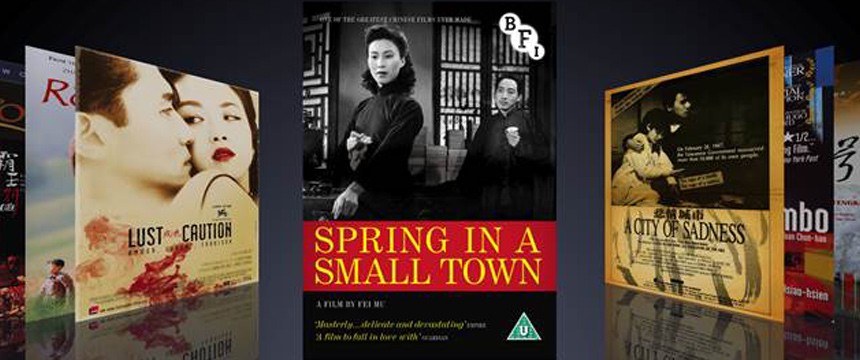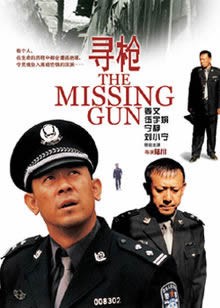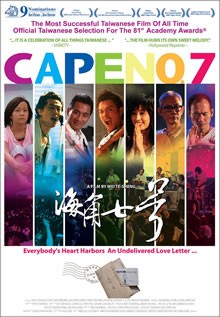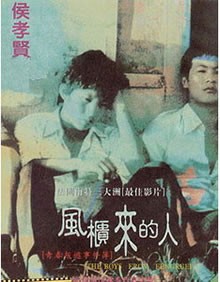
Chinese Cinema
MLLL 3763-900
Ping Zhu, Department of Modern Languages, Literatures & Linguistics
The theme of this course is to study film as an aesthetic form, to begin to explore the rich body of Chinese national cinema, and to learn about Chinese history and culture as reflected through these films.
Public Lecture Series
All following public lectures are free and open to the public. For more information or accommodations on the basis of disability, contact Dr. Zhu at pingzhu@ou.edu.
Chinese film festival screening: Missing Gun
Monday, March 2, 2015
7 - 9 p.m.
Fred Jones Jr. Museum of Art, Auditorium

Chinese film festival screening: Cape No.7
Wednesday, March 4, 2015
7 - 9 p.m.
Fred Jones Jr. Museum of Art, Auditorium

Chinese Language Cinema Salon
with:
- The Newman laureate Chu T’tien-wen,
- Prestigious scholars Rey Chow
- Shu-chin Tsui,
- Ban Wang,
- and Yingjin Zhang
Thursday, March 5, 2015
2:00 - 3:30 p.m.
Bizzell Library, Room LL118 // Helmerich Collaborative Center Community Room
Chinese Film Festival - Boys from Fengkuei screening
Thursday, March 5, 2015
7 - 9 p.m.
Fred Jones Jr. Museum of Art, Auditorium

Presidential Dream Course and Newman symposium
Friday, March 6, 2015
1:30 - 4:45 p.m.
Fred Jones Jr. Museum of Art, Auditorium
- Rey Chow (Duke University), "The Grain of Jade: Woman, Repression, and Fei Mu’s Spring in a Small Town". View Bio
- Shu-chin Tsui (Bowdoin College), "The Return of the Repressed: Masculinity and Sexuality Reconsidered". View Bio
- Man-fung Yip (University of Oklahoma), "From Cape No. 7 to Kano: Some Notes on the Recent Revival of Taiwanese Cinema". View Bio
- Ban Wang (Stanford University), "Where Have All the Villages Gone?: Landscape of Home and Memory in Chinese Literature and Film". View Bio
- Yingjin Zhang (UC San Diego), "Articulating Sadness in Taiwan Culture". View Bio
- Ping Zhu (University of Oklahoma), "The Politics of Androgyny in Chu T’ien-wen’s Notes of a Desolate Man". View Bio
Rey Chow, currently Anne Firor Scott Professor of Literature at Duke University, is a leading scholar of Chinese Cinema. Professor Chow received her Ph.D. from Stanford University. Her research comprises theoretical, interdisciplinary, and textual analyses. She specializes in the making of cultural forms such as literature and film, and in the discursive encounters among modernity, sexuality, postcoloniality, and ethnicity. Professor Chow’s book Primitive Passions (Columbia UP, 1995) is an exemplary critique of Chinese Cinema. She is the author of Sentimental Fabulations, Contemporary Chinese Films (Columbia UP, 2007), a close reading of films aided by her profound familiarity with recent critical thought.
Shu-chin Tsui is Associate Professor of Asian Studies and File Studies at Bowdoin College. Professor Tsui got her Ph.D. in Cinema and Culture Studies from the University of Michigan in 1996. She is the author of a ground-breaking monograph: Women Through the Lens: Gender and Nation in a Century of Chinese Cinema (University of Hawaii Press, 2003). The book explores the intersection between nation and gender in cinematic representations, and is adopted as the textbook in quite a few institutions’ Chinese cinema classes. Professor Tsui has published extensively on Chinese films, especially the representation of gender and sexuality in cinematic works. She teaches East Asian Genre Cinema at Bowdoin College.
Man-fung Yip received his Ph.D. from the University of Chicago in 2011. His research and teaching interests focus on Chinese-language and East Asian film studies, theories of national and transnational cinema, as well as the intersection of cinema, mass culture, and modernity. He is currently working on a book manuscript that explores the juncture between the martial arts film genre and the colonial-capitalist modernity of Hong Kong from the mid-1960s to the end of the 1970s (and beyond). In addition, he is also developing a project on postwar Hong Kong Mandarin cinema, with a particular focus on the so-called “left-wing” films and on the continuities and changes, both aesthetic and ideological, between these films and their prewar Shanghai counterparts
Ban Wang is William Haas Professor in Chinese Studies and the Chair of East Asian Languages and Comparative Literature at Stanford University. He received his Ph.D. in Comparative Literature from UCLA. Professor Wang’s research interests include film, aesthetics, modern Chinese literature, intellectual History, psychoanalysis, transnational politics and Culture. His influential book, The Sublime Figure of History: Aesthetics and Politics in Twentieth-Century China (Stanford UP 1997), explores how various kinds of politics are aestheticized and how aesthetic manifestations are bound up with prevalent ideologies and politics through his reading of fiction, poetry, essays, and films. Professor Wang has published numerous articles on Chinese film.
Yingjin Zhang received his M.A. from the University of Iowa in 1987 and Ph.D. in comparative literature from Stanford University in 1992. Before joining the UCSD faculty in 2001, he taught at Indiana University in Bloomington, where he was honored with an Outstanding Junior Faculty Award in 1996. He served as President of the American Association of Chinese Comparative Literature in 1993-94 and received, among others, a Postdoctoral Fellowship from the University of Michigan in 1995-96, a Summer Faculty Fellowship from the National Endowment for the Humanities in 1999, a Pacific Cultural Foundation Research Grant (Taipei) in 2000, a Fulbright China Research Fellowship in 2003-04, and a UC Humanities Research Institute Fellowship (Irvine) in 2005. He has served as a visiting professor at the University of Chicago as well as several Chinese universities, such as Nanjing University, Shanghai Jiao Tong University, Tongji University, and Wuhan University.
Ping Zhu is Assistant Professor of Modern Chinese Literature in the Department of Modern Languages, Literatures, and Linguistics. She is also a faculty member in the Women's and Gender Studies Program at the University of Oklahoma. Professor Zhu serves as deputy editor of the Chinese Literature Today magazine. Professor Zhu received her PhD in Comparative Literature from Rutgers University in 2010. Her research interests include modern Chinese literature, women’s & gender studies, Chinese films, and literary theory. Professor Zhu has published scholarly essays in comparative literature, modern Chinese literature and Chinese cinema. She is currently working on a book manuscript entitled The Feminine at Large: Gender and Subjectivities in Early-Twentieth-century Chinese Literature and Culture. It explores how the feminine was imagined and reconstructed as a constitutive feature of modern subjectivities in Chinese colonial modernity.
Presidential Dream Course Roundtable on Maoist Cinema
Monday, April 6, 2015
6:00 - 7:20 p.m.
Gaylord Hall, Room 2020
- Jason McGrath (University of Minnesota), "Melodrama in 1950’s Films"
- Zhuoyi Wang (Hamilton College), “From Disaster to Laughter: Making Comedies in the Changing Political Landscape of the People's Republic of China, 1959-1963"
Jason McGrath received his Ph.D. and MA in East Asian Languages and Civilizations, University of Chicago. His specialties include Chinese and international cinema, Modern and contemporary Chinese literature and culture, Realism in fiction, film and theory, issues of convention and intertextuality in film theory and Chinese and Western Marxisms.
Zhuoyi Wang received his Ph.D. in comparative literature from the University of Washington at Seattle. His research interest is in Chinese film history. Wang has taught at various institutions, including the Summer Chinese School at Middlebury College, the Department of Modern Languages and Literature at Kenyon College and the Department of Comparative Literature at the University of Washington. His teaching interests include Chinese history, film, literature and language.

